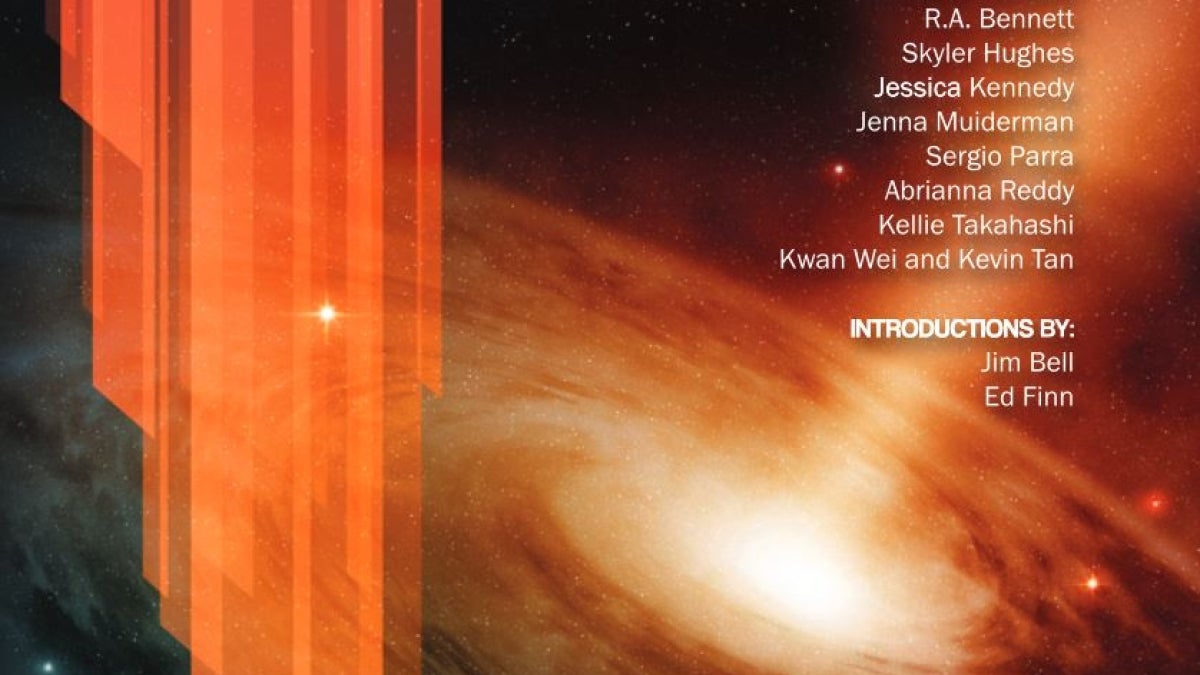Sci-fi anthology explores futures shaped by journeys through time and space

Humanity defines itself by its journeys.
Whether we’re crossing oceans, blasting off into space, migrating to distant unknown lands or pursuing voyages of discovery within our own minds, we learn about who we are and who we want to become by traversing space, time and the imagination.
Just in time for the United Nations’ World Space Week (October 4-10, 2015) comes “Journeys through Time and Space,” a new anthology of creative, thought-provoking visions of the future shaped by excursions through space and time, and into the labyrinthine caverns of the human mind. The anthology is published by Arizona State University’s Center for Science and the Imagination (CSI), Intel’s Tomorrow Project and the Society for Science & the Public.
“Every journey is a journey of the imagination. We travel in order to see the world in new ways, and in the process to understand ourselves in it a little better. This anthology is a dazzling series of expeditions into the future that aim to help us understand who, what and where we are,” says Ed Finn, director of CSI, who co-edited the anthology with G. Pascal Zachary, a professor of practice at the School for the Future of Innovation in Society.
“Journeys through Time and Space” features 11 science fiction stories written by youth ranging in age from 13 to 25 — including entries from Nepal, Singapore and eight different U.S. states. It also includes an essay from planetary scientist Jim Bell, a professor in ASU’s School of Earth and Space Exploration, director of the NewSpace Initiative and president of The Planetary Society, the world’s largest public space advocacy organization.
“Journeys” is the fourth and final anthology in a series of books drawn from “The Future: Powered by Fiction,” a global competition that challenged young people to create science-based narrative visions of the future. The competition attracted hundreds of entries from 15 countries and 36 states in the U.S., plus Puerto Rico and the District of Columbia. All four volumes are free to download, read, and share at tomorrow-projects.com.
“These original and provocative writings highlight in fresh and original ways the two categories of human existence that follow — and lead us — wherever humans go,” says co-editor G. Pascal Zachary. “Space and time are both socially constructed in diverse ways by human communities. But these categories of existence — these parameters of our collective paradigms — never cease to both illuminate and shadow our pursuit of knowledge and a balanced life.”